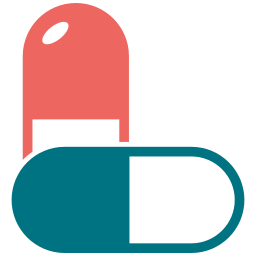Obesity
Adolescents (12 years & older): Obese adolescents should be treated with Orlistat only if an adequate reduction of body weight cannot be achieved by means of diet & increased physical activity. Treatment with orlistat should be considered in particular if complications of obesity are present.
Rare: Influenza, anxiety. headache, fatigue etc may rarely occur in some patients. Rare cases of hypersensitivity have been reported. Main clinical symptoms are pruritus, exanthema, urticaria, angioedema and anaphylaxis.
In clinical trial, the decrease in body weight with Orlistat therapy was less in type II diabetic patients than in non-diabetic patients. Antidiabetic drug treatment should be closely monitored during Orlistat therapy. Because of the improvement in glycemic control, the dose of oral antidiabetics or of insulin may need to be adjusted.
Patients should be advised to adhere to the dietary recommendations. The probability of occurrence of gastrointestinal side effects may increase when Orlistat is taken with a fatty meal. The daily intake of fat should be distributed between three main meals. Patients should be strongly encouraged to take a multivitamin supplement that contains fat soluble vitamins to ensure adequate nutrition because orlistat has been shown to reduce the absorption of some fat soluble vitamins & beta-carotene. In addition, the levels of vitamin D & beta carotene may be low in obese patients compared with non-obese patients.


